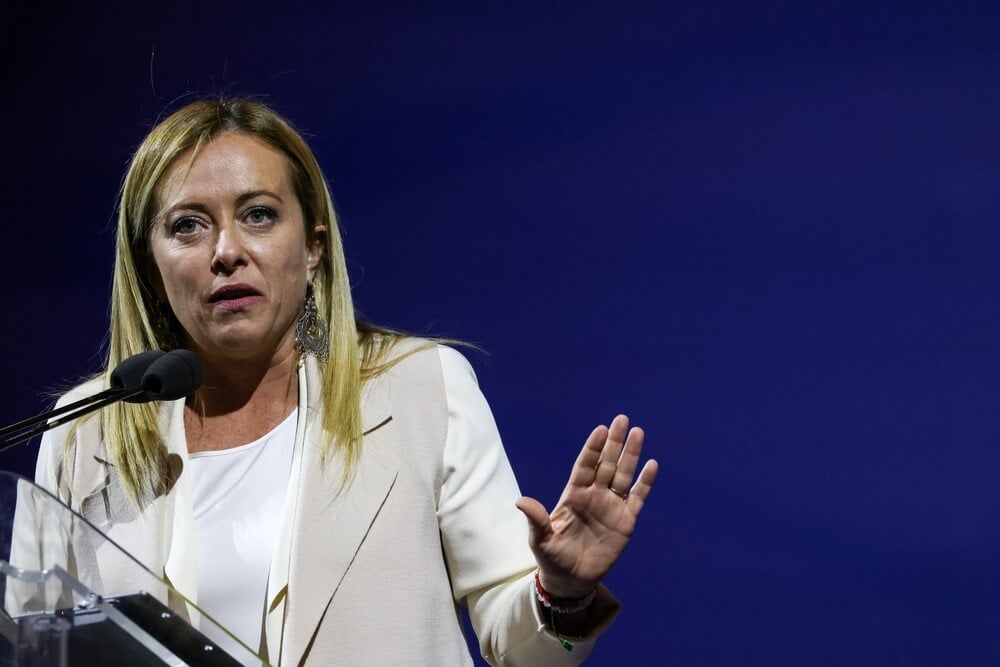The pro-democracy movement's champion during the 2011 Arab Spring looks set to cement the long-term collapse of its democracy and hand the authoritarian government another mandate on Sunday.
On Sunday, Tunisia will elect the country's president, although the current leader, Kais Saied, did everything to make that election meaningless and ensure himself another five-year mandate.
On the ballot, close to 10 million voters will see the name of the current president, Saied, and two other opponents who are close to him.
State authorities either suspended other contenders for the highest state office from the race or imprisoned them.
In August, the Election Commission disqualified as many as 14 presidential candidates because the Interior Ministry refused to provide them with details of their criminal record, which is a new legal requirement for candidacy.
Two presidential candidates received prison sentences in August for allegedly falsifying election documentation, and another received a 20-month prison sentence in September for similar offences.
A certain outcome of the election
The rounding off of complete control over the electoral process followed last Friday, when the parliament revoked the right of the administrative court, otherwise the highest electoral instance, to decide on possible electoral disputes.
Almost two-thirds of the deputies who support the current president thus tied the hands of one of the last democratic institutions in the country, whose constitutional function is to ensure the democratic electoral process.
"We are at the peak of absurdity and one-man rule," said one political activist during Friday's demonstration against the parliament's repressive decision.
A significantly low voter turnout is likely to mark the elections on Sunday
As a result, there remains only a matter of procedure, not political competition, until Kais Saied confirms his new presidential mandate. But what are the potential consequences for Tunisian society, its democracy, and particularly its relations with the region and Europe?
First of all, a significantly low voter turnout is likely to mark the elections on Sunday. Several previous votes during Mr Saied's mandate showed extremely low participation, which is convincing evidence of the regime's low legitimacy.
Less than 30% of voters (27.5%), for example, turned out for the 2022 referendum, which confirmed the constitution after the president suspended parliament a year earlier.
Only 11% of the citizens who cast ballots in 2022 gave the current Tunisian parliament legitimacy.
Tunisian model
Tunisians have completely lost faith in the political system and democratic order due to the repressive actions of President Saied, his government, and the parliament, and Sunday's elections will most likely confirm this perception.
So far, Western governments have found it difficult to disqualify President Saied's regime as undemocratic because they sought to make political agreements with him that would reduce the flow of migrants from Africa to Europe.
The model for controlling migrant flows through Tunisia as the most frequent route has faced numerous objections
Proposed in July 2023, the model for controlling migrant flows through Tunisia as the most frequent route has faced numerous objections, primarily due to the inhumane treatment of migrants.
It predicted that Tunisia would retain African migrants on its territory before they crossed the Mediterranean and reached developed European countries, particularly Italy.
Italian Prime Minister Giorgia Meloni spearheaded the deal, but despite generous European counter-services to Tunisia, including EUR 150 million for migrant management expenses and an announcement of EUR 1 billion to support Tunisia's IMF obligations, the deal is not progressing smoothly.
Although UNHCR estimates indicate that the number of African migrants trying to reach Europe will not decrease, there are now significantly fewer of them than before wealthy European countries moved their borders to North African countries.
Italy, the closest and most desirable destination for African migrants, reached slightly more than 20,000 migrants from June to September, which is two-thirds less than in the same period in 2023.
At the annual level, the ratio remains the same. Around 44,000 migrants from Africa have come to Italy since the beginning of the year, which is a big drop compared to around 125,000 in 2023.
No U-turn in EU policy
Tunisia is most responsible for this decline in the number of migrants reaching Europe, and this means that the EU, under the greatest influence of the Italian government and Prime Minister, will not drastically change the model of financial support for Tunisia to keep migrants away from Europe.
 The EU, under the greatest influence of the Italian government and Prime Minister Giorgia Meloni, will not drastically change the model of financial support for Tunisia to keep migrants away from Europe
The EU, under the greatest influence of the Italian government and Prime Minister Giorgia Meloni, will not drastically change the model of financial support for Tunisia to keep migrants away from Europe
The pressure on European leaders will continue to be strong to change this model, given the cases of inhumane treatment of migrants by the Tunisian authorities and the criticism that European money does not go to the humane treatment of migrants but to the Tunisian authorities.
As before, it will primarily come from international human rights organisations as well as the European Parliament.
However, right-wing policies, which made a significant breakthrough in the June European Parliament elections and a series of national parliamentary elections in EU member states, will shape EU decisions more than before.
Their joint course towards ever-increasing restrictions on the arrival of migrants, which is the backbone of their policies, suggests that the EU will put the derogation of democracy in Tunisia on the back burner as long as the country shows effectiveness in weakening migrant flows.